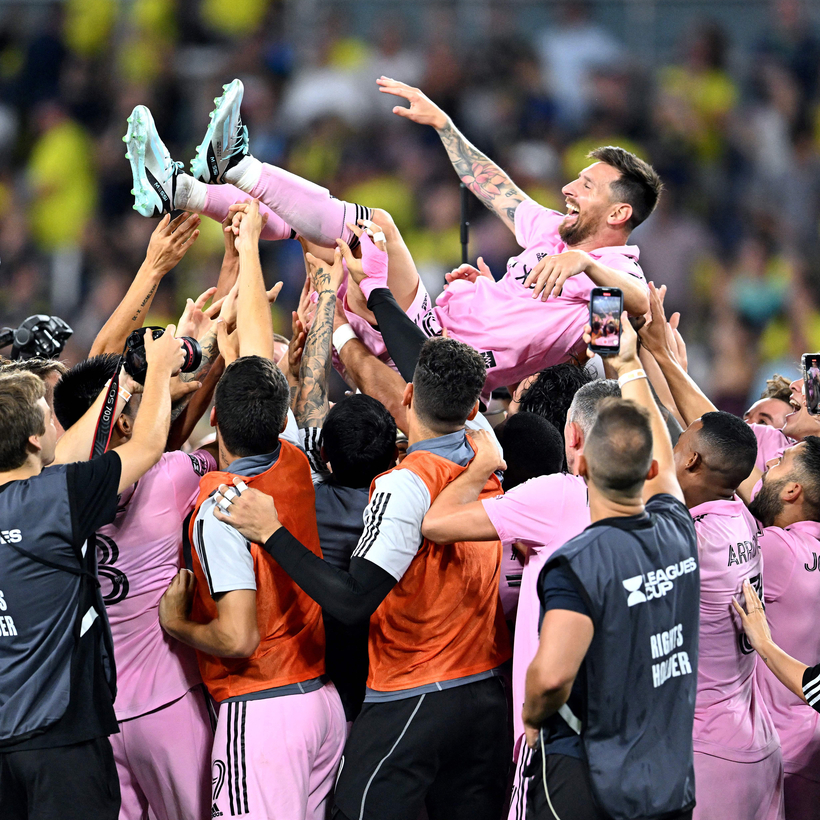The blurry snaps posted on Instagram by Victoria Beckham told the story of a star-studded night out in Miami. Taken at a steak house and cocktail bar co-owned by the Grammy-winning Puerto Rican megastar Bad Bunny, they showed the fashion designer and her husband, David, enjoying a raucous dinner with a large group including a pair of new residents: the footballer Lionel Messi and his wife, Antonela Roccuzzo.
They did not show the fracas that erupted at the end of the night, when security guards bloodied a patron they suspected of trying to photograph the celebrities. Instead, Beckham captioned the pictures: “I LOVE MIAMI!!!”

